Mahmoud Khalil’s Detainment Won’t Stop the Pro-Palestine Student Movement
The reverberations of Khalil’s arrest are being felt beyond Columbia University’s campus.
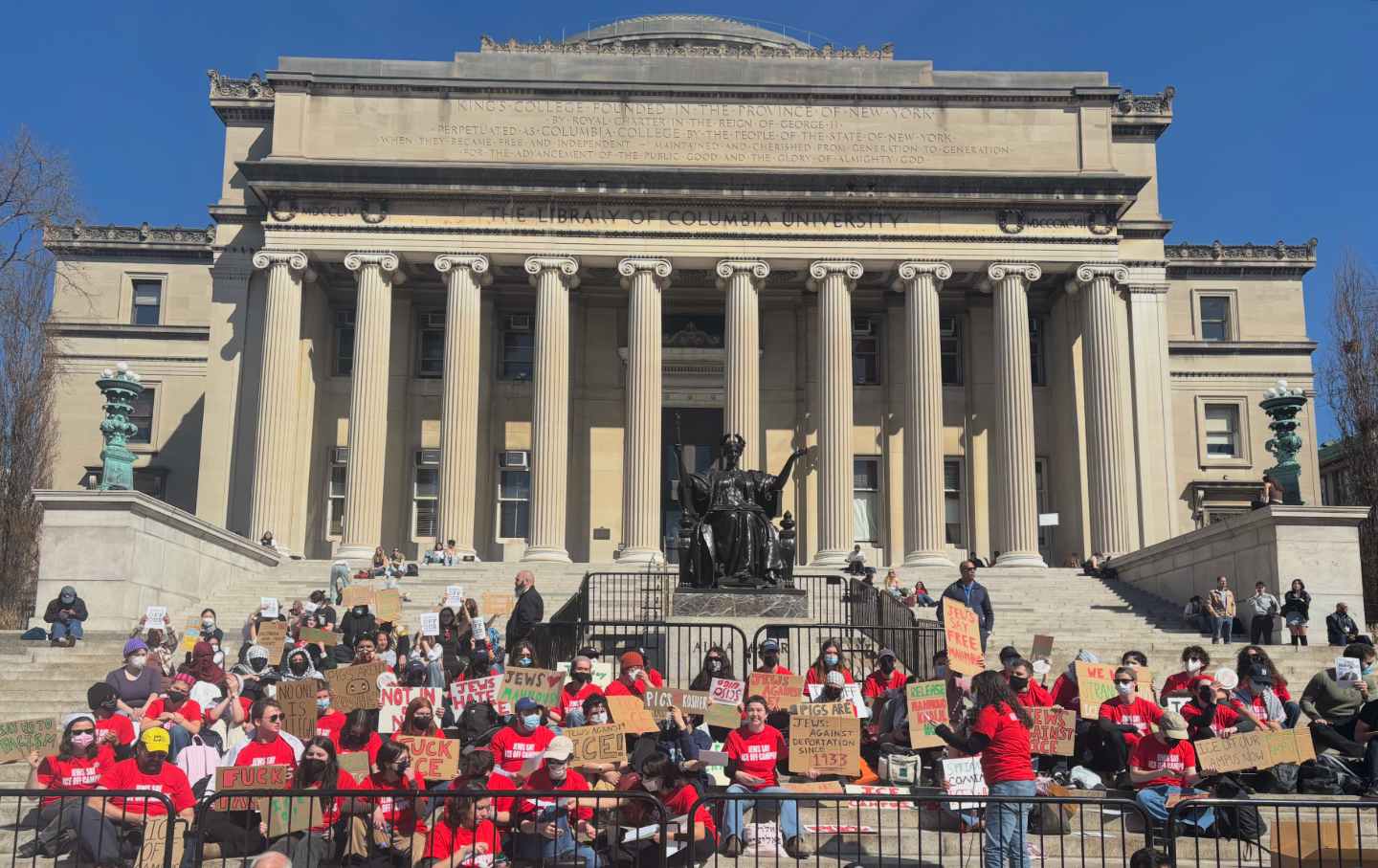
A protest on the steps of Columbia University’s Low Library advocating for Mahmoud Khalil’s immediate release.
(Lara-Nour Walton)
Around half past 8 on Saturday evening, Mahmoud Khalil was returning home from an Iftar dinner. As his eight-month-pregnant wife accompanied him into their Columbia-owned New York City apartment, four plainclothes agents with the Department of Homeland Security intercepted them. Despite his lawful permanent resident status, DHS agents claimed that they were revoking his visa on State Department orders. When Khalil, a recent Columbia graduate and campus activist against Israel’s war on Gaza who is of Palestinian descent, informed agents that he in fact had a green card, they pivoted to say that they were revoking that instead. Then he was detained. DHS did not produce a warrant to justify his arrest.
For 24 hours, neither Khalil’s wife nor attorney knew of his whereabouts. It has since surfaced that he is being held in an ICE detention facility in Louisiana, part of what the ACLU has dubbed the “Black Hole” because of the human rights abuses that immigrants have routinely faced in the state’s ICE jails.
Many have called his detainment an “abduction,” coming on the heels of the Trump administration’s effort to quash the free speech of those critical of Israel. Amnesty International and the International Court of Justice have said it is “plausible” that the state is committing a genocide against the Palestinian people. Columbia has been one of the president’s main targets since he took office. Just this Friday, Trump cut $400 million in federal funding to the university, claiming that it allowed “illegal protests” on campus and failed “to protect students from anti-Semitic harassment.” It is important to note that the administration equates anti-Zionism with antisemitism, a conflation that could potentially, according to legal experts, “violate the First Amendment.”
On March 6, Canary Mission, a website that publicizes the personal information of those it considers anti-Israel or antisemitic, posted footage of Khalil on its Instagram negotiating with Barnard administrators during last week’s sit-in. The video was titled “SUSPECTED FOREIGN NATIONAL ALERT.” The day before Khalil was detained, the X account “Documenting Jew Hatred on Campus at Columbia U” called on Secretary of State Marco Rubio to “revoke Mahmoud Khalil’s visa.” Once news of Khalil’s detainment hit the press, Rubio wrote, “We will be revoking the visas and/or green cards of Hamas supporters in America so they can be deported.” The White House also claimed that Khalil’s arrest was the “first of many to come.”
Maryam Alwan, a close friend of Khalil and co-organizer of last year’s Columbia Gaza Solidarity encampments, believes that these accounts played a role in his targeting by the Trump administration. “The whole reason that his face was unmasked in the first place is because he was never scared of doxxing,” said Alwan, who characterized Khalil as someone who refused to submit to fear tactics and who always remained “calm and rational.”
Alwan has been losing sleep over Khalil’s sudden detainment, which “feels completely unreal,” she said. After being arrested by the NYPD last April for her activism and experiencing enduring trauma from the school’s violent treatment of Palestinian students, Alwan spent the first semester of this year “laying low.”
“I just wanted to get my degree,” she told The Nation. But in light of Khalil’s apprehension, Alwan feels galvanized to speak out against the school. “I don’t give a fuck about my degree anymore.”
Indeed, despite the university’s suspension and expulsion of pro-Palestine activists, students refuse to be intimidated. This Tuesday, hundreds joined an action on the steps of Low Library advocating for Khalil’s immediate release. The demonstration, which was led by a coalition of Jewish Columbia students donning custom red T-shirts reading “JEWS SAY ICE OFF CAMPUS” and “NOT IN OUR NAME,” aimed to send a message to the university that it, as one organizer phrased it, “must do better” by not capitulating to a “fascist regime in the name of Jewish safety.”
“I do not bow to corrupt kings or their…antisemitic, racist, narcissistic, out of touch, fraudulent, pathetic, Nazi saluting advisers,” said one of the Jewish protesters, Aharon Dardik. “In this country, we have freedom of assembly and speech…. Mahmoud was abducted [because of his] bravery to stand up against the ongoing genocide in Palestine—of his own people. It is this bravery that we all must channel today.” The situation in Palestine remains dire as Israel “imposes starvation” via its Gaza humanitarian aid blockade and escalates attacks on the West Bank.
Another Jewish organizer stood before the crowd of protesters seated in front of Columbia’s iconic Alma Mater statue: “So many of us know the cost of deportation, of racist or antisemitic immigration law. We know what happens when fascism is on the rise and no one stands up.” Many demonstrators held signs plastered with messages like “first, they came for Mahmoud” (referencing Martin Niemöller’s anti-Nazi statement), “pigs are not kosher,” “Jews against deportation since 1933,” among others.
The presence of ICE on campus marks a departure from Columbia’s almost decade-long commitment to remaining a sanctuary school. Additionally, Khalil’s detainment is not the only time DHS agents have been spotted on campus in recent days. Promising to cooperate with ICE, Columbia public safety published a new protocol asserting that “exigent circumstances may allow [ICE] access to University buildings or people without a warrant.”
Student Workers of Columbia (UAW Local 2710) released a statement demanding “that President Armstrong reinstate Columbia as a sanctuary campus.” Similarly, the Columbia College and Columbia Engineering student councils authored a joint Instagram post to instruct students on how to engage with ICE “in the face of uncertainty and extreme repression.”
“We have a lot of Columbia faculty who are legal permanent residents…who are vulnerable in various ways,” said professor Joseph Howley, one of the few nonstudent protesters, despite organizers’ pleas for faculty to join them. “We may have a long way to go before we can think about ourselves as a united faculty,” he continued. “But, I hope and I pray that this moment of synchronized attacks on our students, funding, and on my colleagues’ jobs will clarify to everyone who our enemies are and how important it is that we stand against them.”
Popular
“swipe left below to view more authors”Swipe →The reverberations of Khalil’s arrest are being felt beyond campus. A national petition pressing for his immediate release from DHS detention has garnered more than 2.8 million signatures. Congress members like Rashida Tlaib, Ilhan Omar, Ayanna Pressley, Alexandria Ocasio-Cortez, and others have publicly urged the Trump administration to free Khalil. The ACLU and the NYCLU have both joined his legal team.
On March 10, a federal judge halted Khalil’s deportation and scheduled a detention court hearing. Meanwhile, emergency protests in support of Khalil have sprouted up in New York City and non-American citizens across US universities have pledged to continue organizing for Palestinian liberation. In an op-ed published in Mondoweiss, a group of international students wrote, “You may censure and suspend us, you may send ICE to knock down our doors, you may deport us back to our home countries, but we are only one drop in a vast ocean, and the tide of support for Palestine is rising everywhere.” The Times of Israel reports that Americans’ backing of Palestine is at an all-time high.
Alwan believes that Khalil’s case is a “pivotal moment,” much like the mass encampment arrests of April 19, 2024, or the earlier suspension of campus groups Students for Justice in Palestine and Jewish Voice for Peace. “Anytime…there’s a new escalation that we never imagined before, that’s when people mobilize,” she added. “[Students] can see that the mask is being lifted and that fascism is genuinely encroaching.”
More from The Nation
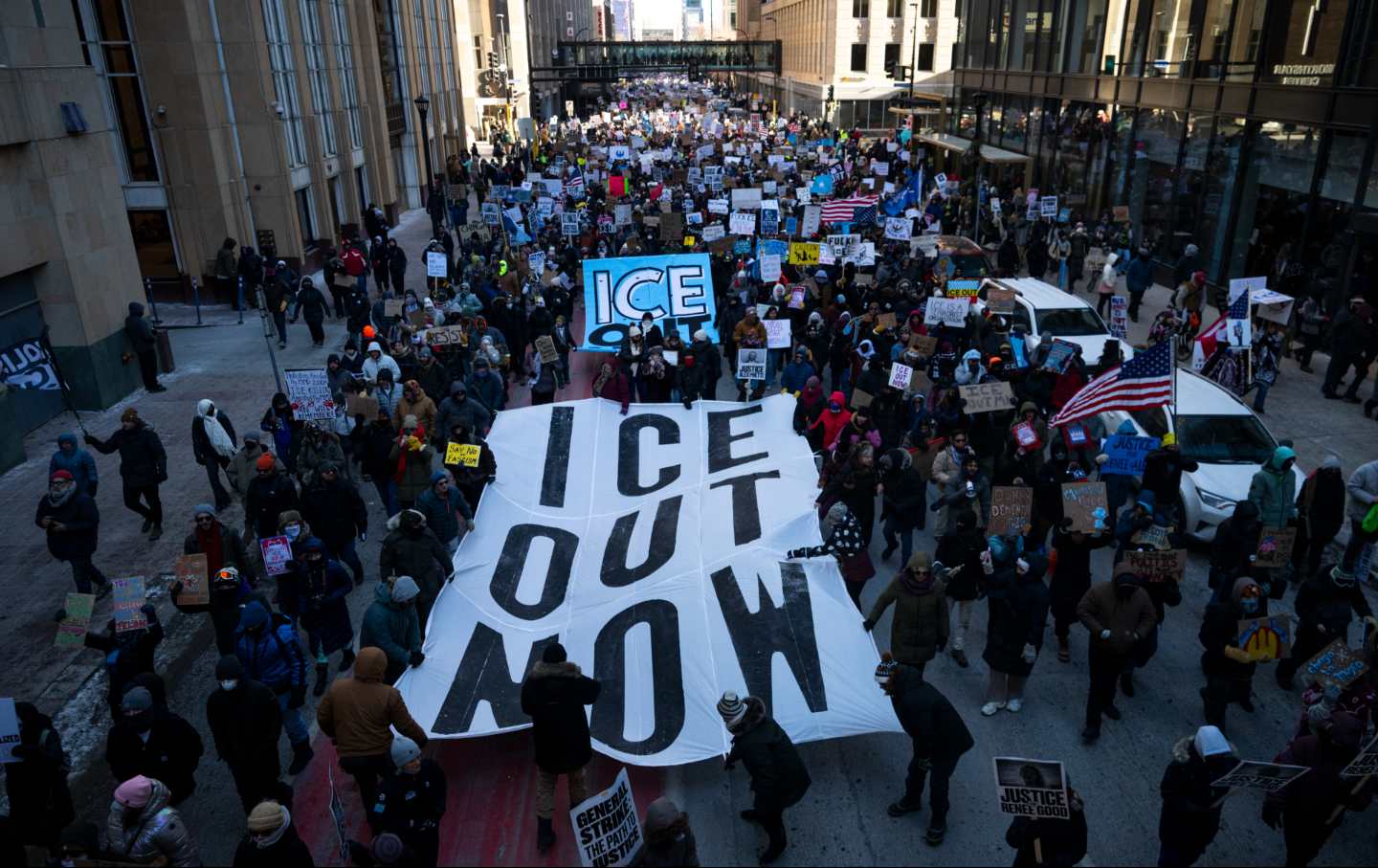
ICE Melts in the Minneapolis Winter ICE Melts in the Minneapolis Winter
Now it’s time to abolish the agency and impeach Kristi Noem.
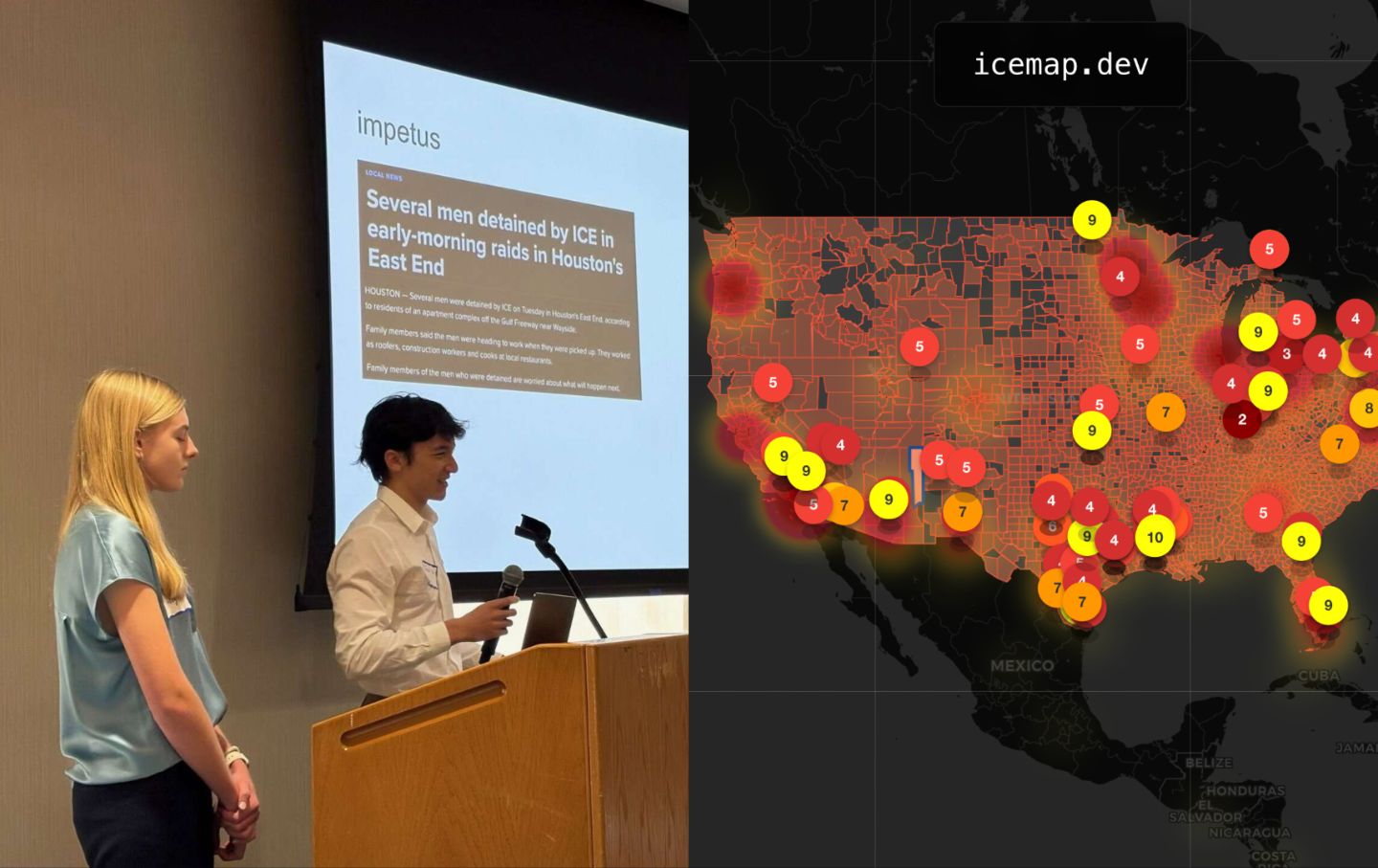
How 2 University Freshman Are Tracking ICE Enforcement Actions Across the Country How 2 University Freshman Are Tracking ICE Enforcement Actions Across the Country
With ICE Map, Rice University students Jack Vu and Abby Manuel hope to help communities understand where immigration enforcement activity is happening and how it unfolds in real t...
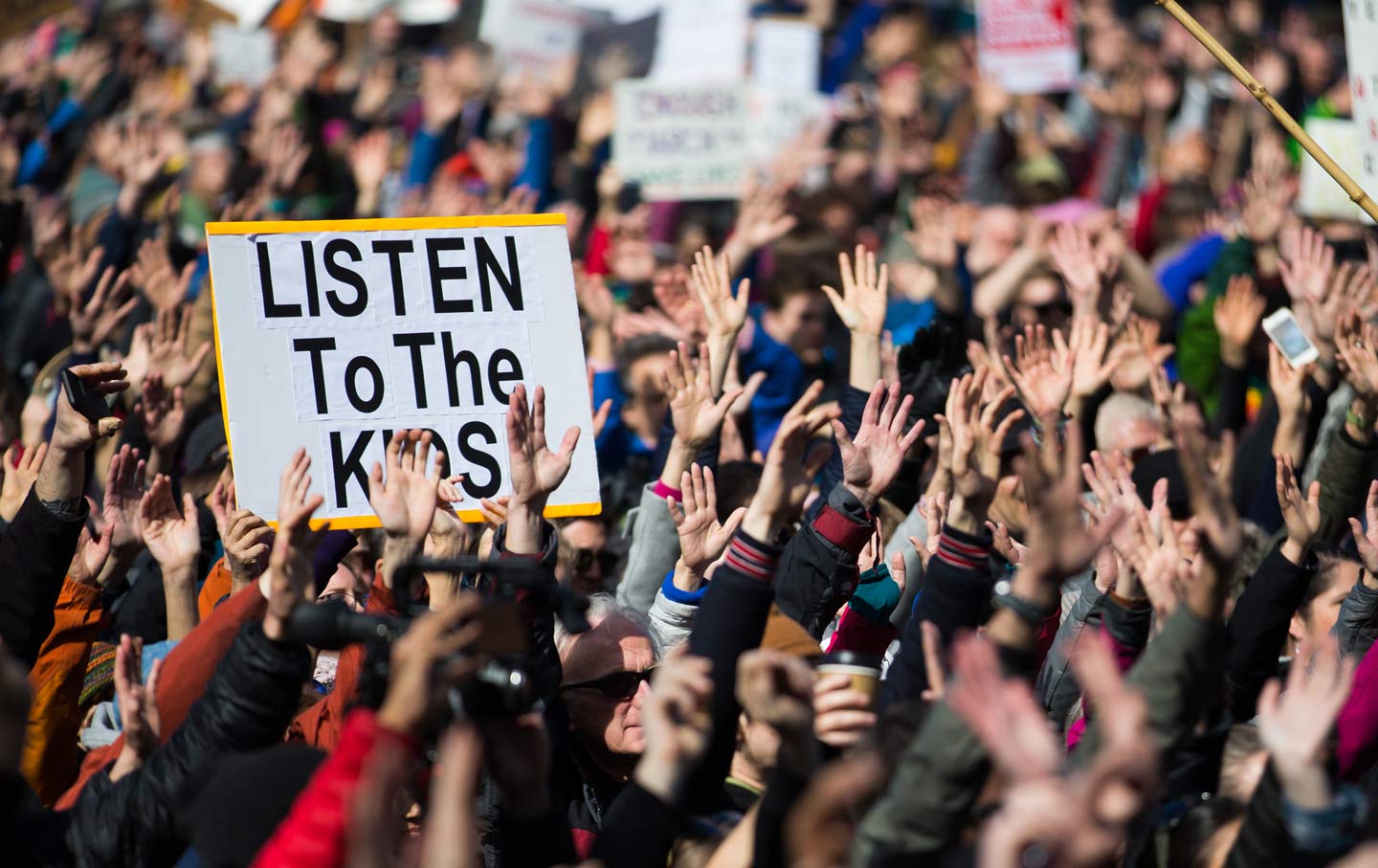
Meet the Young Organizers Survival Corps Meet the Young Organizers Survival Corps
Young organizers from around the country gathered at Haley Farm to study past social movements and train in the tactics of nonviolent resistance and grassroots organizing.
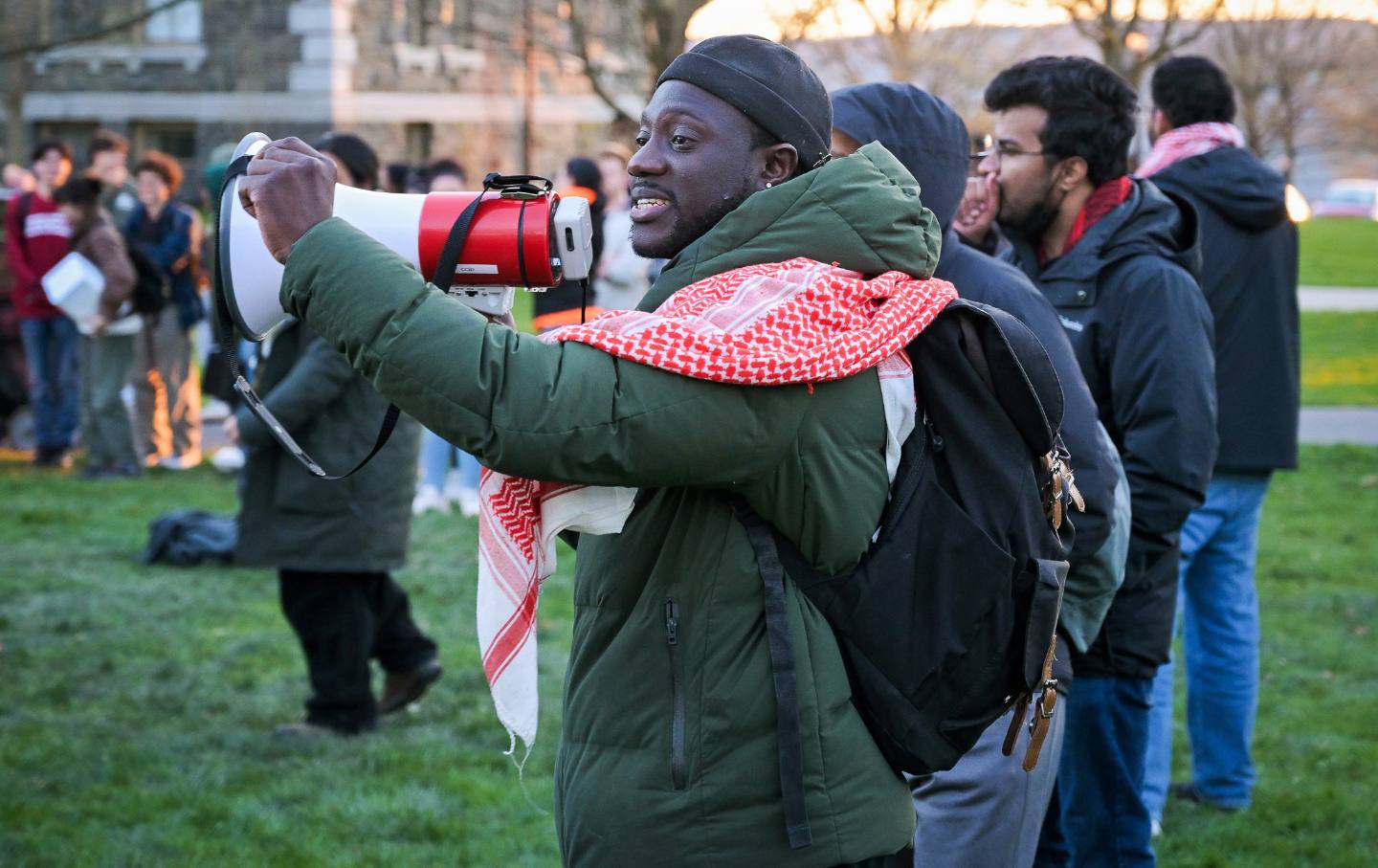
I Fled the US to Escape the Security State. Instead, It Followed Me. I Fled the US to Escape the Security State. Instead, It Followed Me.
My recent detention at Heathrow shows that the architecture of state repression knows no borders.
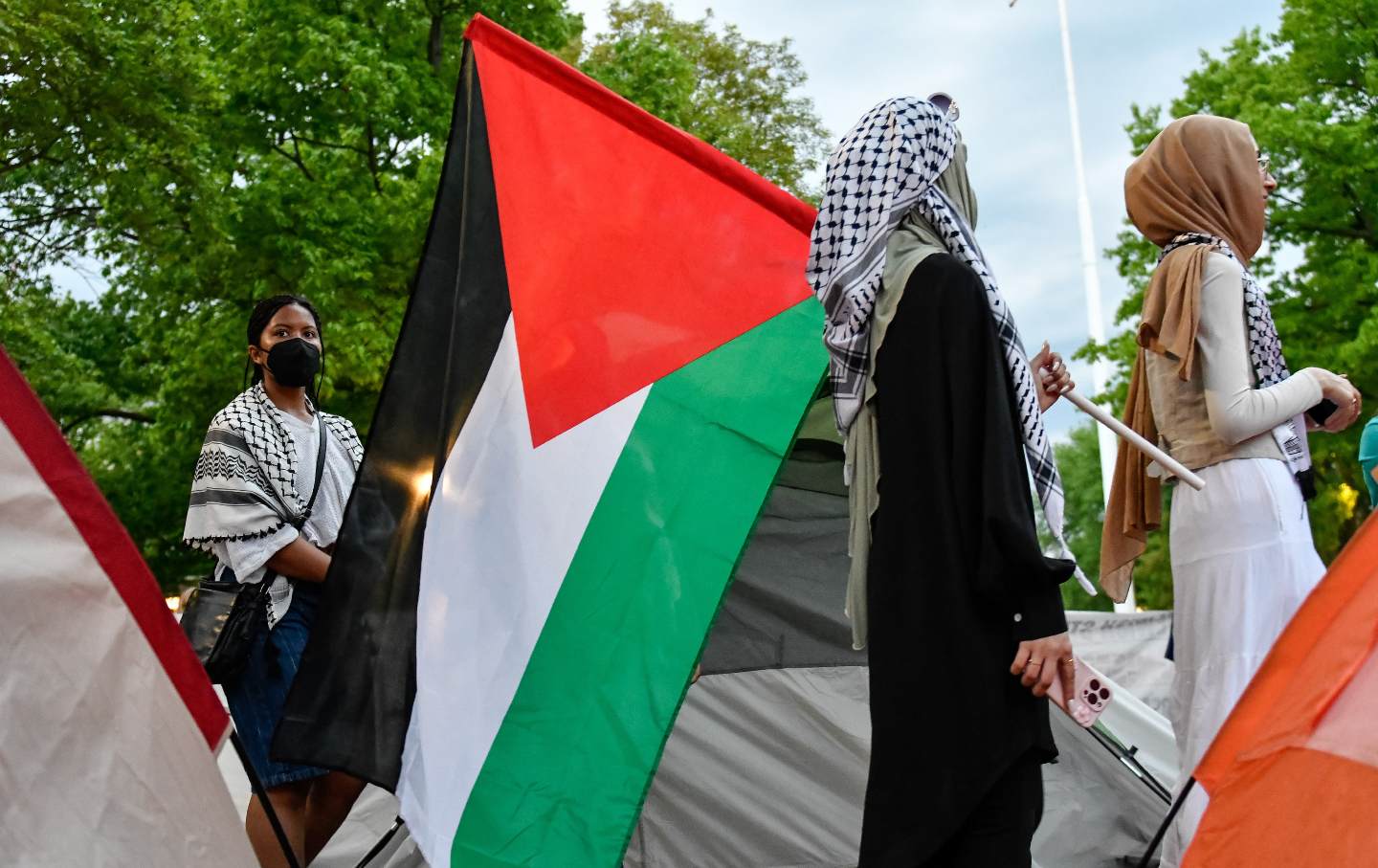
Surveilled on Your Own Campus Surveilled on Your Own Campus
Universities across the country have used extraordinary measures to target student activists following more than two years of pro-Palestinian protests.
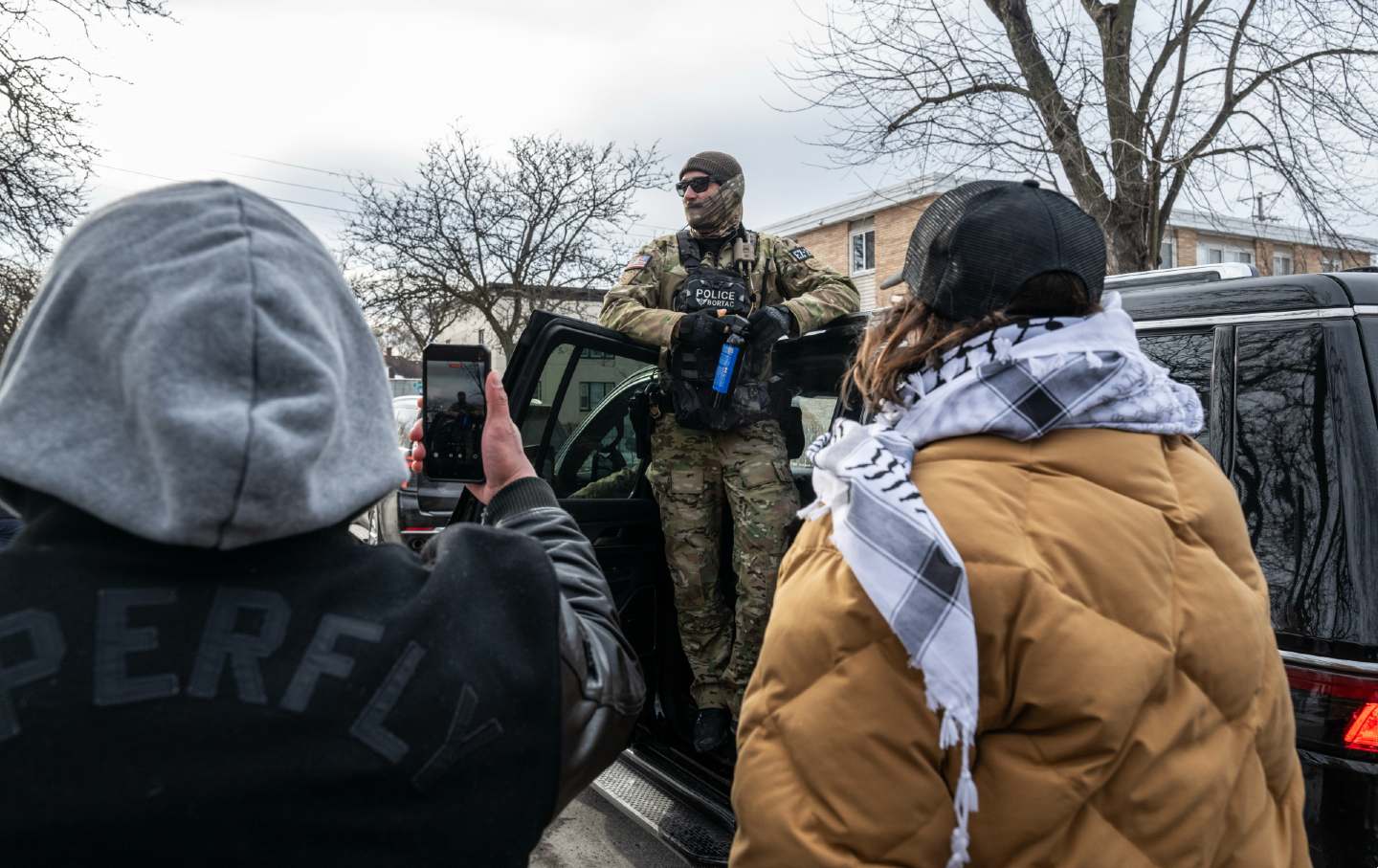
Citizen Journalists Are Minneapolis’s Unsung Heroes Citizen Journalists Are Minneapolis’s Unsung Heroes
Without their videos of ICE shootings, we wouldn’t know what is really happening.


